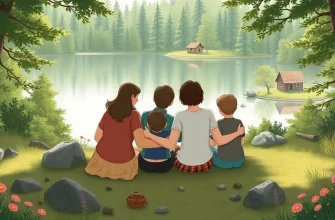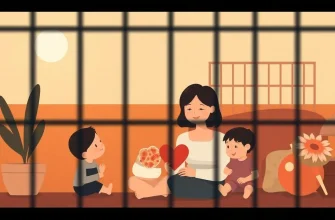Envy, a universal human emotion, has been a recurring theme in Soviet cinema, often used to explore the complexities of human nature and societal dynamics. This curated collection of Soviet films delves into the theme of envy, showcasing how it manifests in different contexts, from personal relationships to professional rivalries. Each film provides a unique perspective, making this selection not only a journey through Soviet film history but also a deep dive into the human psyche. Whether you're a cinephile or simply curious about Soviet culture, these films offer a rich tapestry of stories that resonate with timeless themes.

The Twelve Chairs (1971)
Description: A satirical comedy about a former aristocrat and a con artist searching for hidden jewels in one of twelve chairs, where envy drives the characters to extreme lengths for wealth.
Fact: The film was based on the novel by Ilf and Petrov, which itself became a cultural phenomenon in Soviet literature.
 30 Days Free
30 Days Free 
The Diamond Arm (1969)
Description: This comedy revolves around a man who unwittingly becomes a pawn in a smuggling operation, leading to a series of hilarious events where envy plays a central role among the characters, each vying for the diamonds.
Fact: The film was one of the highest-grossing Soviet films of all time and has become a cultural phenomenon in Russia.
 30 Days Free
30 Days Free 
The Irony of Fate (1975)
Description: While not directly about envy, the film subtly explores the theme through the protagonist's life, where his mundane existence leads to a comedic case of mistaken identity, highlighting the envy of a simpler, more predictable life.
Fact: It's a New Year's Eve tradition in Russia to watch this film, making it one of the most beloved Soviet comedies.
 30 Days Free
30 Days Free 
A Cruel Romance (1984)
Description: This film adaptation of Ostrovsky's play explores themes of love, betrayal, and envy among the Russian gentry, where envy for social status and wealth leads to tragic consequences.
Fact: The film was nominated for the Golden Prize at the 14th Moscow International Film Festival.
 30 Days Free
30 Days Free 
The Pokrovsky Gate (1982)
Description: A nostalgic look at life in a communal apartment in Moscow, where envy and jealousy among neighbors lead to comedic and sometimes poignant situations.
Fact: The film was one of the first Soviet films to openly discuss the realities of communal living.
 30 Days Free
30 Days Free 
The Garage (1979)
Description: A satirical look at Soviet bureaucracy and human nature, where envy over parking spaces in a communal garage leads to absurd and hilarious conflicts.
Fact: The film was directed by Eldar Ryazanov, known for his sharp social commentary.
 30 Days Free
30 Days Free 
The Ballad of a Soldier (1959)
Description: While primarily a war film, it subtly touches on envy through the protagonist's brief encounters with civilians, showcasing the envy of those not at the front.
Fact: The film won the BAFTA Award for Best Film from any Source in
 30 Days Free
30 Days Free 
The Cranes Are Flying (1957)
Description: This poignant war drama indirectly explores envy through the protagonist's struggle with the loss of her fiancé and the subsequent envy of those around her who have not experienced such loss.
Fact: It won the Palme d'Or at the 1958 Cannes Film Festival.
 30 Days Free
30 Days Free 
The Ascent (1977)
Description: A harrowing tale of two partisans during WWII, where envy and betrayal play a critical role in their survival and ultimate fate.
Fact: The film won the Golden Prize at the 10th Moscow International Film Festival.
 30 Days Free
30 Days Free 
The Mirror (1975)
Description: Tarkovsky's semi-autobiographical film explores themes of memory, time, and envy, with characters reflecting on their lives and the envy they felt or inspired in others.
Fact: The film is known for its non-linear narrative and poetic visuals, making it one of Tarkovsky's most personal works.
 30 Days Free
30 Days Free 








